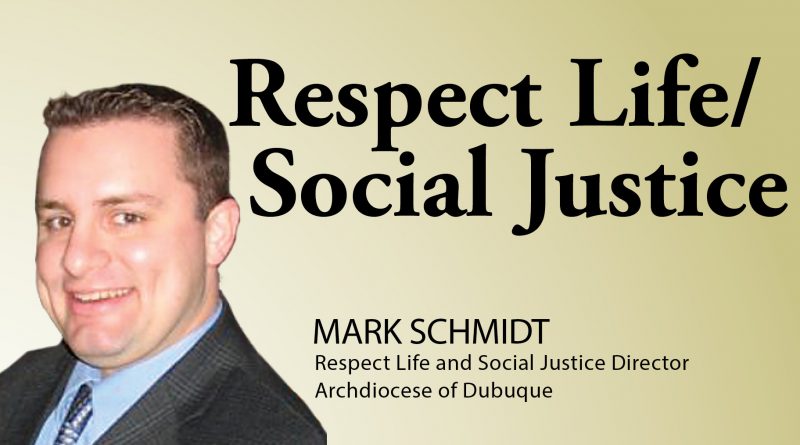Applying Catholic pro-life teaching to both the migrant crisis and abortion issue
Earlier this year Pope Francis wrote in a message “that the issue of migration is not simply one of numbers, but of persons, each with his or her own history, culture, feelings and aspirations. … These persons, our brothers and sisters, need ‘ongoing protection,’ independently of whatever migrant status they may have.”
One of the challenges of addressing immigration as people of faith and as a nation is that the issue seems so big. We can get lost in statistics. We can forget the human person right in front of us or at the border or living among us is made in the image of God whom we are called to love as ourselves and as Christ loved us.
When we begin with love it helps us to recognize what is at stake for migrants and refugees. We enter into relationship with them and can more readily apply the golden rule, to treat others as we wish to be treated. Anonymous numbers become people with hopes, dreams, triumphs, tragedies, families and friends.
During the month of January every year the Catholic Church in the United States celebrates National Migration Week, this year was from Jan. 6-12, and also commemorates the anniversary of Roe. v. Wade with a novena for life, a prayer to end abortion and uphold the right to life, called 9 Days For Life from Jan. 14-22.
Much of the anti-immigrant sentiment that is being spread shares something in common with pro-abortion commentary: the denigration of the dignity of the human person. In order to argue for the right to destroy the child in the womb, to separate children from their parents at the border, denying asylum for people fleeing violence, persecution or poverty, people often begin with language that dehumanizes the victims of such violence. The unborn are referred to as “clumps of cells,” the migrant as “dirty,” “dangerous,” a threat to “our way of life” and “illegal.”
The remedy to both of these false ideologies is love and the intentional language that reminds everyone that the unborn and the migrant are persons who share the same right to life and right to security and happiness that each of us have.
Another challenge in addressing any particular issue is that people often fall into the trap of being “either/or” rather than “both/and” with regards to defending the dignity of the human person. Pope Francis mentioned this temptation in his letter “On the Call to Holiness in Today’s World.” He said:
“We often hear it said that, with respect to relativism and the flaws of our present world, the situation of migrants, for example, is a lesser issue. Some Catholics consider it a secondary issue compared to the ‘grave’ bioethical questions. That a politician looking for votes might say such a thing is understandable, but not a Christian, for whom the only proper attitude is to stand in the shoes of those brothers and sisters of ours who risk their lives to offer a future to their children. Can we not realize that this is exactly what Jesus demands of us, when he tells us that in welcoming the stranger we welcome him (cf. Mt 25:35)?”
Our faith reminds us that we can and should work to end abortion and welcome the migrant at the same time. That we are called to evangelize the world around us to see Christ in the unborn and the migrant by building a culture of life and a culture of encounter.
For resources on migration issues, participate in the Formation For All session on immigration at: dbqarch.org/rlsj/formation and justiceforimmigrants.org. And for resources to participate in the novena for life, go to: 9daysforlife.com.



